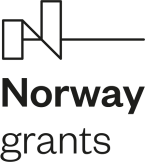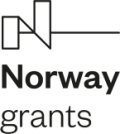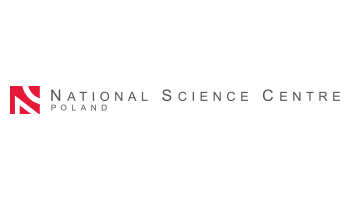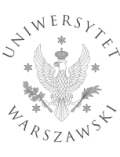MULTILADA
PolkaNorski


Aims of the project
The PolkaNorski project investigated the development of language skills and world knowledge in Polish-Norwegian multilingual children and their monolingual peers in Poland and Norway.
In the PolkaNorski project, we studied the development of language skills and world knowledge in Polish-Norwegian multilingual children and their monolingual peers in Poland and Norway.
We focused on understanding the relationship between children’s language skills, their knowledge of the world, and the linguistic, cultural, and educational environments in which they were growing up. As part of four research work packages, we analyzed data from multilingual Polish-Norwegian children and monolingual Polish and Norwegian children aged 2 to 6 years.
We conducted studies on the language development of monolingual and multilingual children, comparing three language groups (two monolingual: Polish and Norwegian, and one bilingual) and observing their language development trajectory from the age of 2 until the end of preschool age. We also observed and described the brain mechanisms underlying word processing in children. Additionally, we analyzed the influence of the culture in which the children were raised on their language development and their acquisition of knowledge about the natural world.
Furthermore, we sought to answer whether it is possible to effectively support expectant parents so that their future multilingual children have optimal conditions for language development.
We believe that the PolkaNorski project has provided valuable data that enhances our understanding of language and cognitive development in children across various linguistic and cultural environments.
Why is this important?
Due to the migrations in Europe, more children are growing-up in multilingual and multicultural contexts and are acquiring more than one language. Therefore, questions concerning multilingualism and ways in which we can support multilingual development before children start formal education, are now especially important. Our project was focused on children of Polish immigrants in Norway, which constitute a large immigration group in this country. The studies provided a comprehensive description of monolingual and multilingual development, in terms of children’s language development, acquisition of the knowledge related to nature, the neural basis of language processing, and parental beliefs concerning their child’s language development. The project focused on setting the boundaries of typical language development in multilingual children and will enable more accurate diagnosis in terms of possible language disorders. We believe that the outcomes of this study, will help in creating guidelines for supporting early multilingual language development in the family and the educational context.
Detailed information
Principal investigators: prof. Ewa Haman (University of Warsaw) & prof. Nina Gram Garmann (Oslo Metropolitan University & MultiLing, University of Oslo).
Katarzyna Bajkowska
Martyna Burdach
Anna Duszyk-Bogrodzka, PhD
Agnieszka Dynak, PhD
Natalia Falkiewicz
Ewelina Fryzowska
Ewa Komorowska, PhD
Grzegorz Krajewski, PhD
Magdalena Krysztofiak
Itziar Lozano Sánchez, PhD
Magdalena Łuniewska, PhD
Wiktoria Ogonowska
Judyta Pacewicz
Andrzej Tarłowski, PhD
prof. Przemysław Tomalski
Ewelina Baj (OsloMet)
Ingeborg Sophie Bjønness Ribu, PhD (OsloMet)
prof. Pernille Hansen (Inland Norway University of Applied Sciences & MultiLing, UiO)
Anna Sara Hexeberg Romøren, PhD (OsloMet & MultiLing, UiO)
Elisabeth Holm (OsloMet)
Katarzyna Kaniuk (OsloMet)
Svitlana Kharkevich (OsloMet)
Jolanta Kilanowska, PhD (OsloMet)
Franziska Köder, PhD (MultiLing, UiO)
Karolina Krupa-Gaweł (OsloMet)
Paulina Kudyba (OsloMet)
Lisa Laumann (OsloMet)
Cecilie Rummelhoff (MultiLing, UiO)
dr Mari Sandbakken (OsloMet)
Marta Stasiukiewicz
Ayla Fjeld Skorpen (OsloMet)
Eirik Tengesdal (OsloMet)
Michelle White, PhD (MultiLing, UiO)
What's new?
31.03.2024
The PolkaNorski project officially came to an end on 31.03.2024!
1523 families and 59 teachers participated in our research, 57 researchers worked with us, and we submitted 10 project-related articles for publication.
Thank you to all our participants, researchers, students and collaborators! Without your help, PolkaNorski would not have been possible!14.03.2024
We held the closing conference for the PolkaNorski project: Polish, Norwegian or both: attempts at large-scale studies on language and cognitive development. Findings and challenges. The conference programme can be found here.5-9.02.2024
19.12.2023
Congratulations! Katarzyna Bajkowska defended her MA thesis:
Developing a Questionnaire on Parents’ Knowledge and Beliefs about Language Development and Bilingualism !25-27.11.2023
Agnieszka Dynak and Magdalena Krysztofiak presented our project at MPal Conference in Nijmegen, the Netherlands.23-24.11.2023
Natalia Falkiewicz, Ewelina Fryzowska and Wiktoria Ogonowska presented our project at the NeuroCog 2023 in Brussels, Belgium.
Archive 2023
- 22.11.2023
- 28.09.2023
- 18-23.09.2023
- 31.08-2.09.2023
- 23-25.08.2023
- 29.07.2023
- 26-30.06.2023
- 19.04.2023
- 15.03.2023
- 14.03.2023
- 1.03.2023
- 28.02.2023
- 11.02.2023
- 9.02.2023
- 11.01.2023
- 09.01.2023
4th Summer School on Social Human-Robot Interaction.
8th Lancaster International Conference on Infant and Early Child Development (LCICD 2023)
in our BabyLab at the University of Warsaw!
We can't wait for more little scientists!
in Sydney, Australia.
Multilingualism without stress? - let's talk about Polish-speaking children in Norway
Marta Dragan, Karolina Fidrych, Barbro Rosfjord Hornby and Amadea Weselak joined us as research assistants.
Archive 2022
- 1.12.2022
- 21-22.11.2022
- 17.10.2022
- 1.10.2022
- 28.09.2022
- 15-16.09.2022
- 1.09.2022
- 7-10.07.2022
- 5.07.2022
- 9-11.06.2022
- 14-17.05.2022
- 8-12.05.2022
- 1.04.2022
- 1.03.2022
Marta Stasiukiewicz, Karolina Krupa, Lidia Zawodnik, Katarzyna Kaniuk and Ewelina Baj joined us as research assistants.
Mari Sandbakken joined us as research assistant in the third work package!
Wiktoria Ogonowska, Ewelina Fryzowska and Ayla Fjeld Skorpen joined us as research assistants, and Julia Radzikowska received a MA scholarship in the third work package!
Charlotte Bergsaune became the coordinator of research assistants in Norway, while Judyta Pacewicz and Cecilie Rummelhoff have joined us as research assistants
Archive 2020-2021
- 22.10.2021
- 1.10.2021
- 01.07.2021
- 23.06-26.07.2021
- 1.06.2021
- 17.06.2021
- 1.04.2021
- 9.02.2021
- 4.02.2021
- 1.10.2020
Agnieszka Dynak, PhD, has joined our team!





PolkaNorski project
was conducted at the Faculty of Psychology, University of Warsaw
It was funded with Norway Grants (www.norwaygrants.org) via National Science Centre (www.ncn.gov.pl) within the GRIEG call. Project title: “Polish and Norwegian language and world knowledge development in mono- and multilingual children” (UMO-2019/34/H/HS6/00615; funding: approx. 1500000 EUR)
